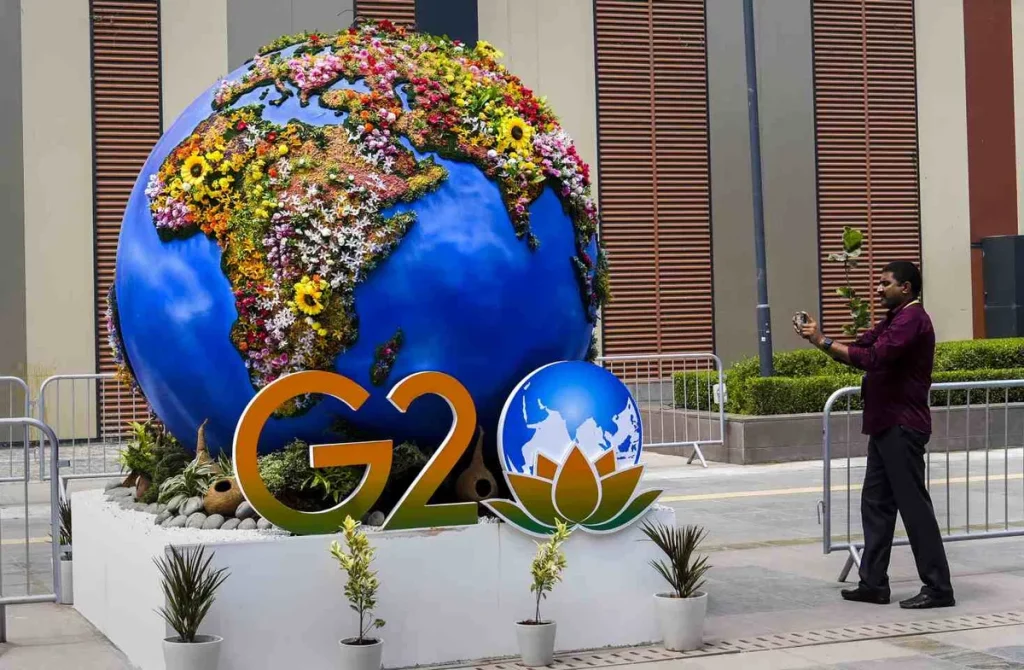External Affairs Minister S Jaishankar was both correct and wrong when he insisted that the decision of Russia’s President Vladimir Putin and his Chinese counterpart Xi Jinping not to participate in the ongoing G20 summit had nothing to do with India. He is right because the absence of the two top world leaders from the forum is a reflection of the fact that the G20 bloc is problematic with internal tension and rift rather than an outright disapproval of India’s presidency. At the same time Jaishankar and the government are wrong to project the summit as a momentous event since they are aware of the extremely limited clout the bloc enjoys over influencing world affairs. The Indian government has pointlessly falsified the routine rotational turn of host countries to the event appear as if it were a high point of its leadership in geopolitics. That is why a country-wide publicity campaign was launched with the logo of G20 becoming ubiquitous throughout the country. This has even made the Opposition level the charge that the ruling party is trying to draw propaganda mileage for the coming Lok Sabha elections a few months away. Even if there is truth in the charge, it is only natural that any political party running the government would capitalise on such events for electoral gains. Hence, the BJP is no exception.
It also seems the government is determined to mix the occasion with domestic politics for gaining political advantages at home. This alone explains the unusual decision to drop the country’s name – India – which the world is familiar with and use the second name, Bharat instead. This name was not heard of earlier in international events. It has suddenly appeared on the invitation card for a dinner hosted by India’s President for G20 summit participants. The government did not stop at that. The country name card placed in front of the Prime Minister at the session itself had only Bharat on it, instead of India, which had always been the case. The Opposition alleges the government has done this as it is scared by the name the alliance of 26 parties has chosen. The bloc’s acronym – I.N.D.I.A (Indian National Development Inclusive Alliance) tallies with the country’s name. The alliance claims it is working to preserve the country’s democratic principles and inclusive politics which are under threat now. The name, it says, so strongly resonates with the people of the country that the BJP government is out to erase the country’s name itself and substitute it with the second name that also finds place in the Constitution.
No one expected Putin to show up in New Delhi for the G20 summit. He had been absent from last year’s session in Indonesia too. This is because he would not allow the forum to be used for condemning Russia’s invasion of Ukraine. He did not even risk showing up in South Africa for the recent BRICS summit, despite his friendly relationship with the ruling African National Congress.
But the decision of Xi to skip the Delhi G20 and send Premier Li Qiang in his place, appeared to be a last-minute snub of host nation India. The Chinese leadership seemed to send out the message loud and clear that this summit is not likely to resolve the geopolitical fissures increasingly dividing the two countries.
Xi’s absence may also be intended to tell the world that China no longer feels a need to meet with India at the highest level. Beside India, it may also reflect a desire to avoid being forced to endorse or reject statements Xi is uncomfortable with, such as condemnation of its ally Russia for its invasion of Ukraine.
Last year’s G20 summit in Bali, Indonesia took place in an atmosphere of high tension over the invasion in Ukraine. Putin stayed away but Xi did not. To the surprise of many and thanks partly to the adroit backstage management skills of host President Joko Widodo, the summit was able to produce a joint declaration that all 20 members were able to sign, including Russia. The document was a compromise of sorts as it mentioned “most members strongly condemned the war in Ukraine, while there were other views as well.”
The global conflict where Russia and China are involved has been exacerbated further. That a joint declaration or a communiqué would be difficult to arrive at was made clear by US National Security Advisor Jake Sullivan who said getting an “absolute consensus on a statement on Ukraine is challenging.”
However, a “consensus declaration” has finally been made, but it refrains from condemning Russia for the Ukraine war. It is mostly a pious platitude on war and aggression so as not to provoke Russia. This only shows how little the bloc could be effective in addressing global conflict situations where big powers are involved.
In a nutshell, although 4100 crores have reportedly been spent for arrangements, the recently concluded G20 meet has been much smoke and noise without any tangible and beneficial diplomatic or economic fallout for India (that is Bharat) or its people.
